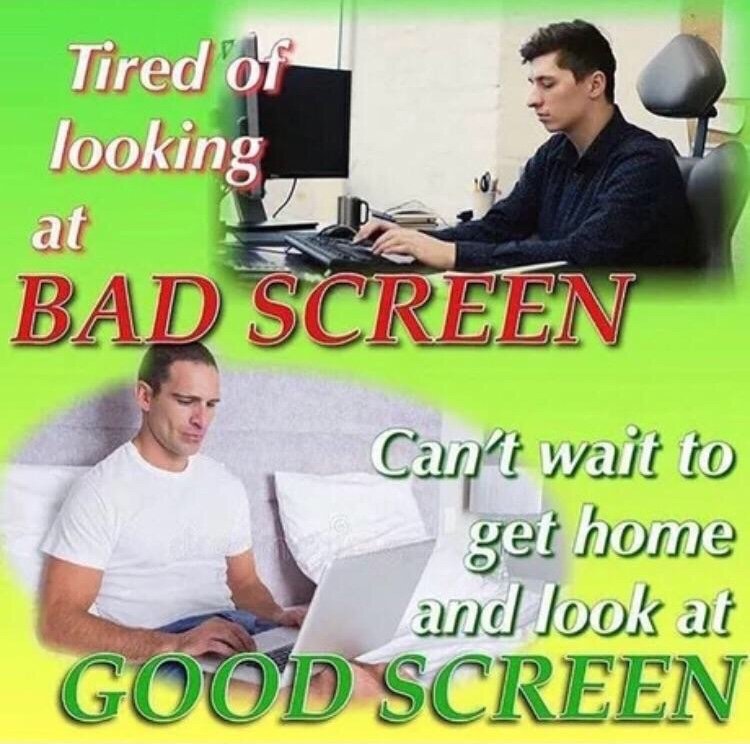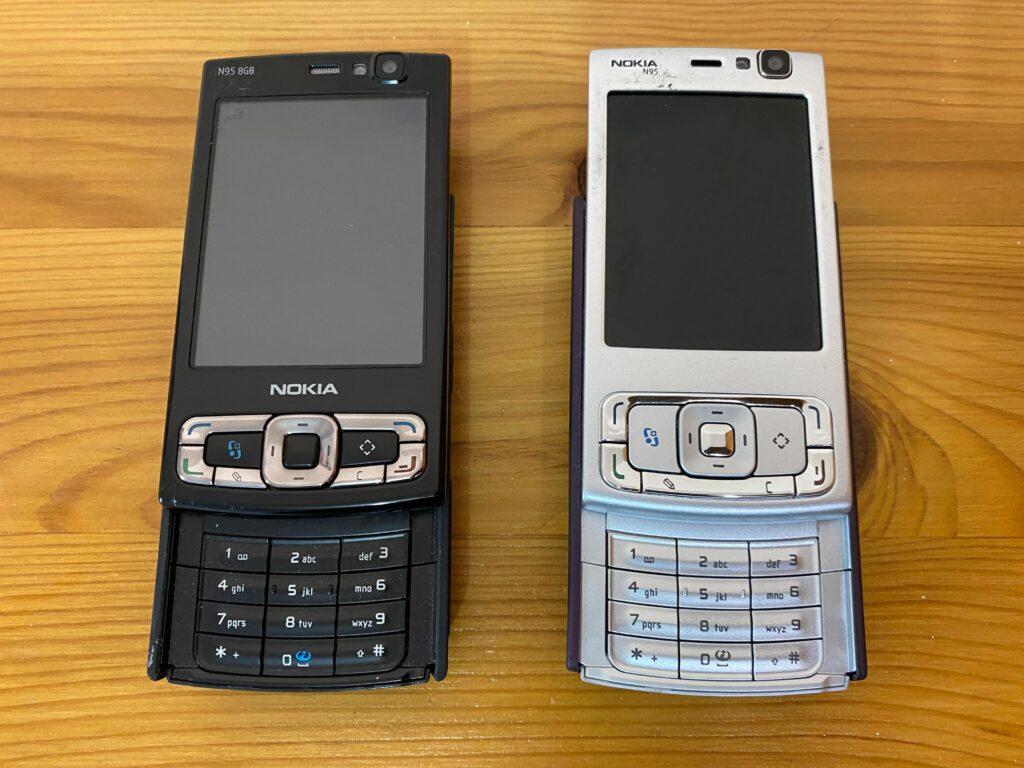Listen to this article 🎧

Why Do “Phones“ Dominate Our Free Time?
The interesting thing about your phone is the fact that it isn’t really a phone at all anymore. It’s a computer.
A smartphone, when it’s at home, has a Wi-Fi connection and such little use for normal telephone calls that I usually just keep it on aeroplane mode with the Wi-Fi on to conserve power. After all, how often does anyone ever contact you outside of WhatsApp? Is there anything you do on your phone at home that you can’t just do faster and easier on your computer?
I would argue not. Yet you always see people at home on the sofa with their phones out. “No phones at the table” is a common family rule.
But that “phone” isn’t really being a phone at all—just a smaller, slower, but more comfortable, lazier computer.
If you check your screen time in settings, it’s usually around five or six hours (mine is at least 3–4). I think for most countries the national average is around 8 hours a day now. But can you imagine spending 8 hours a day on a computer? Well, you probably can. In fact, you probably do it already from Monday to Friday, right? It’s generally called a job.
So why is a PC a work machine and the phone a leisure one?
I have an inkling of an idea, but to be honest, I’m not entirely sure myself.
Privacy obviously springs to mind—on your phone, only someone looking directly over your shoulder can really see what you’re up to.
Attention span too, since using a computer generally requires a certain posture and a degree of focus. It’s not as easily interruptible as the phone.
And lastly, the purpose of the device: the computer still represents being a work and study tool, but the phone is a personal communication and entertainment device.
The short answer is then perhaps that it probably just feels more natural. It’s lazier, easier, cosier—at the end of your arm, more familiar. It’s justifiable as well: “What if someone really needs to reach me?” is a common and quite rational concern. So your phone remains connected. You remain reachable throughout the day.
Vibrating near you. Little bells and whistles. Little noises grabbing your attention all day while you’re at home.
And so many people continue to rack up that 6 to 8 hours per day on their phones on the sofa—roughly half of the waking hours during the day.
My argument is: just put your phone on charge when you get home and leave it there. If your computer is on and Wi-Fi is connected, it will also ring if someone really needs you (they probably won’t), but you can easily silence the message sounds when you want.
You won’t unconsciously spend your whole day on the machine.
If you do check it periodically and you see a message you need to reply to, you’ll be much faster with a full keyboard in both hands.
Plus, you’d be much less likely to go down the rabbit holes of distraction with all the notifications.
Maybe it’s a scapegoat for avoiding the deeper problem of device addiction altogether. Perhaps.
But as with all of these more complicated things, I think the reality is not so black and white as good or bad.
We’ve all tried living without a phone altogether—or perhaps a computer—and to be honest, it’s totally stupid. You just can’t get things done as efficiently.
I had a friend in my workplace who, at one point, recommended that I try (as he had done) purchasing a high-end but older model dummy phone, which was, I think, the Nokia N95. I lasted about 10 days before it was just such an inconvenience that it was… it was ridiculous, as far as even just something simple like your music player.

He told me, “Well, you know, you can just as easily go on YouTube and download the MP3 for the songs you want. Connect the phone with a USB or remove the memory card, plug that into the computer, transfer the songs across, and of course plug your normal headphones in through a 3.5 millimetre audio jack.”
Yes, that’s true—you can do that—but it’s a pain in the ** and it’s totally not worth it.
Actually, the music players themselves have developed a lot. To compare Spotify to the audio player on a Nokia phone is almost like comparing a modern microwave to a bonfire. Not to mention maps, google search, chatgpt, Uber…

They’re just orders of magnitude different in accessibility and convenience.
These things are not quite as black and white as simply “good” or “bad” even if their net outcomes on society are negative, on a personal level – we can’t really live without them..
It seems to me that the computer still remains a tool that we reach for when we have something that we already need to do, and the phone is a device we reach for when we have time on our hands and nothing to do.
That’s why I think a lot of the time, when you don’t have your phone, you reach in your pocket instinctively in spare moments—idle moments— instead of just sitting there and being bored like a normal person used to. We’ve lost the ability to be bored..
And I think, to some degree, that’s somewhat OK. It’s not the best, but it is what it is, we have to take it with a pinch of salt.
Our lives have changed forever, and this kind of technology is not going to go away.
If you try and live without it, you’re just putting yourself at a massive disadvantage.
So, as far as I can tell, the only option that remains to us is to make sure that we take control of how we use these devices—to ensure that we use them and it’s not that they are using us.
So my advice?
When you get home, put your phone on charge and leave it alone. And if you’re going to spend some time chilling at home for a while, turn a computer on—or leave it on standby with the speakers plugged in.
Play some music. Read a book. Do some journaling. Do whatever you need to do. And if you have a task that requires a computer, use one.
Mindlessly pissing away hours on a device designed to steal your attention is not ideal, but neither is totally abstaining from technology.. Its just about using the devices in a more mindful way. Get the job done and move on.
That way you can reclaim the hours that everyone is racking up—at least, most people. When you’re home alone, and you sit on the sofa and reach for that device that consumes all your time… What are you really getting done? Who is really using who?
After all, there are only two industries in the world that call their customers “users”:
One is drugs and the other is technology.

